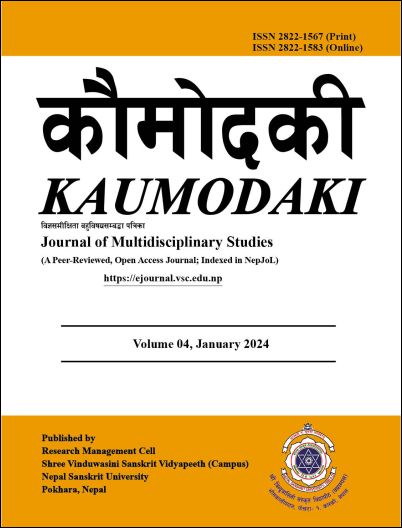Rudyard Kipling’s Oriental Perspective and Representation in Kim
DOI:
https://doi.org/10.3126/kdk.v4i1.64563Keywords:
Culture, imperialism, orientalism, post-colonialism, representation, superiorityAbstract
Rudyard Kipling has been judged as an advocate of imperialism in his novels, particularly in Kim, where he implies the message that the Britishers are the finest race to rule the land they have colonized. He has set his novel in India from the colonial and oriental perspectives. This research article, in general, is a study and analysis on what oriental perspectives Kipling has represented in his description of the land and characterization of the Indian people and how he has shown English superiority on them in the novel. The research is based on primary and secondary data. Discussion and analysis of the data are carried out through inducting reasoning, applying the post-colonial perspective of Orientalism propounded by Edward Said in his book Orientalism. This paper particularly attempts to interpret the way Kipling has characterized the protagonist, and the way he has depicted socio-cultural and geopolitical contexts through which the colonial message of English superiority upon colonized land and peoples is conveyed. The finding shows that Kipling has shaped the protagonist, an Irish boy under fifteen, as an able English personality to influence, control, dominate and lead Indian natives in many occasions. He has been presented as decisive role player upon the natives he is associated with. The protagonist’s presence in the novel gives the colonial message that India and Indians are still unable to rule themselves well and save their land from their enemies. Therefore, they need English people to rule the country for their prosperity and protection.
Downloads
Downloads
Published
How to Cite
Issue
Section
License

This work is licensed under a Creative Commons Attribution-NonCommercial 4.0 International License.
This license enables reusers to distribute, remix, adapt, and build upon the material in any medium or format for noncommercial purposes only, and only so long as attribution is given to the creator.




